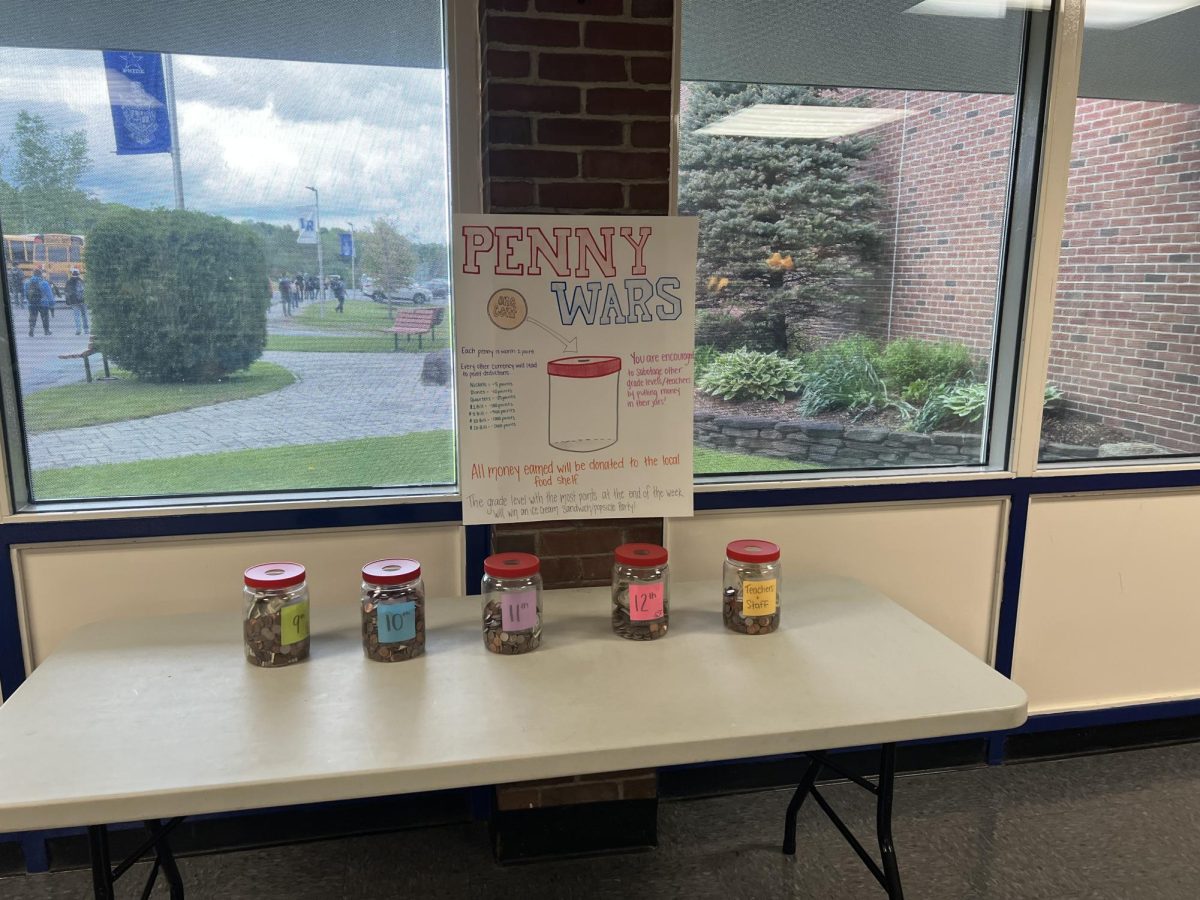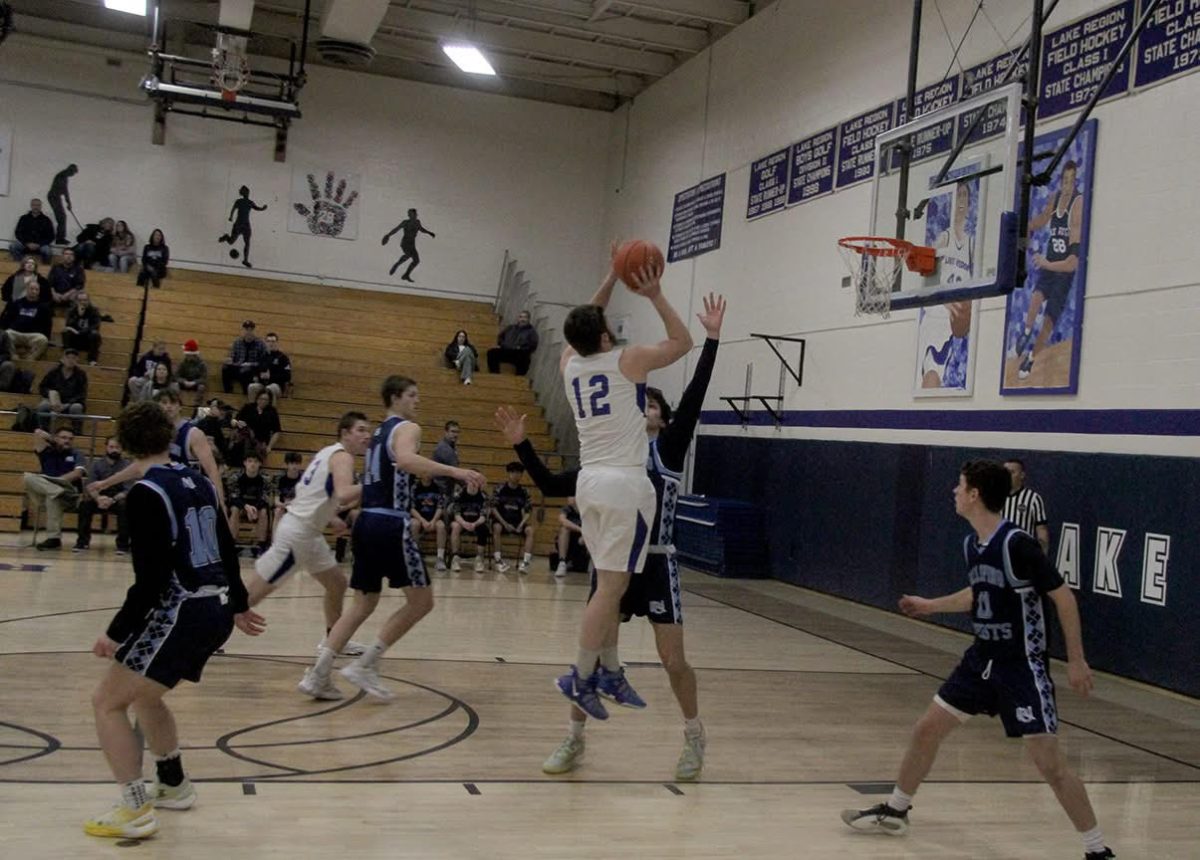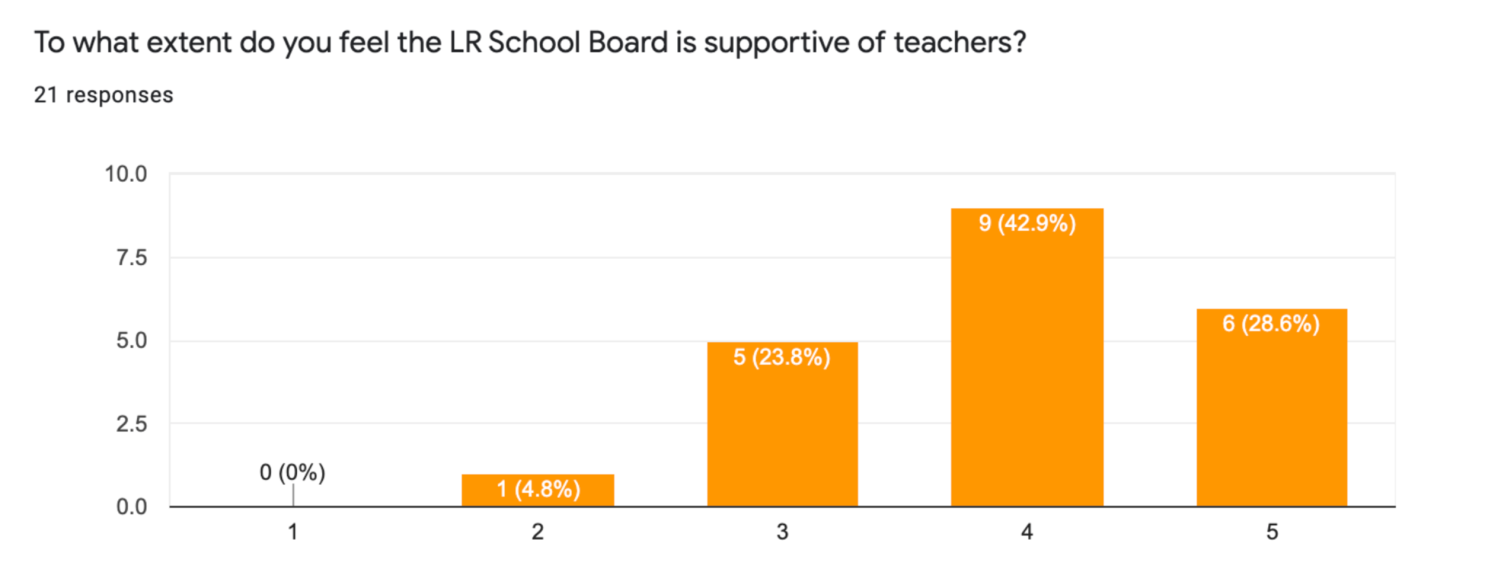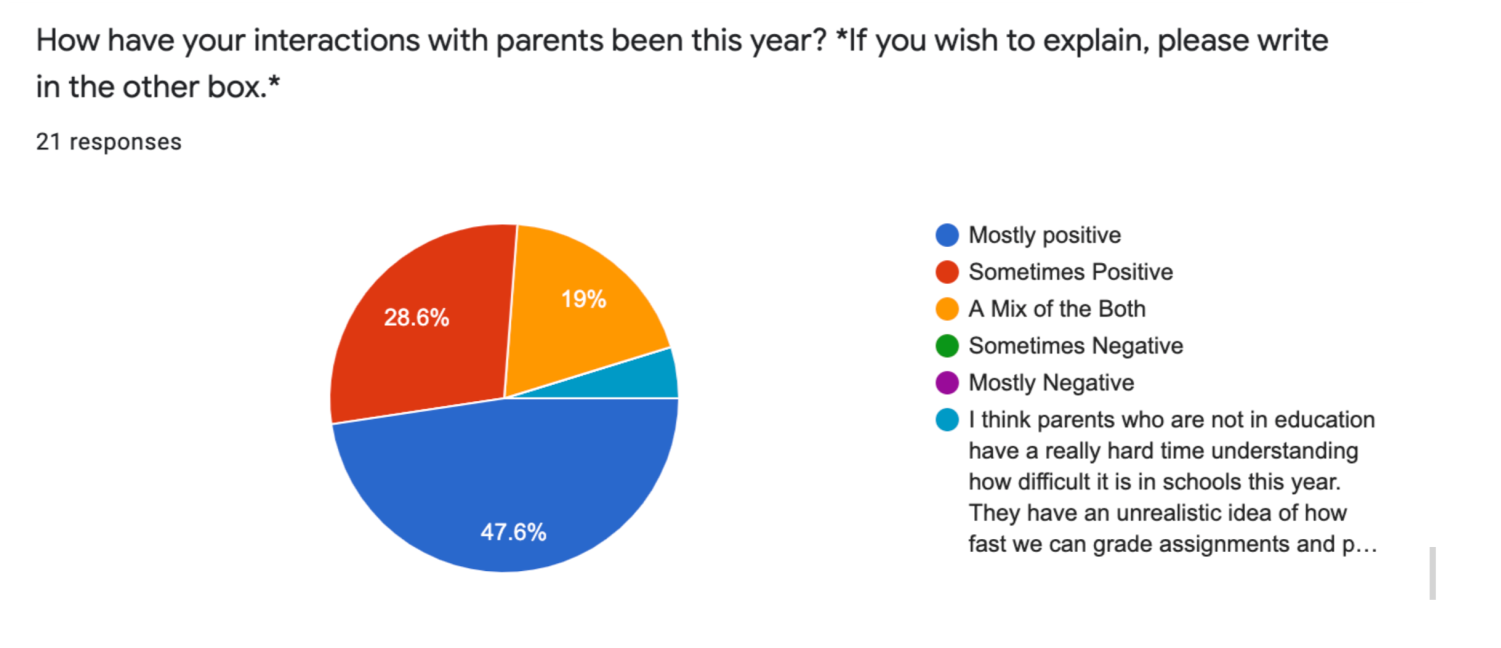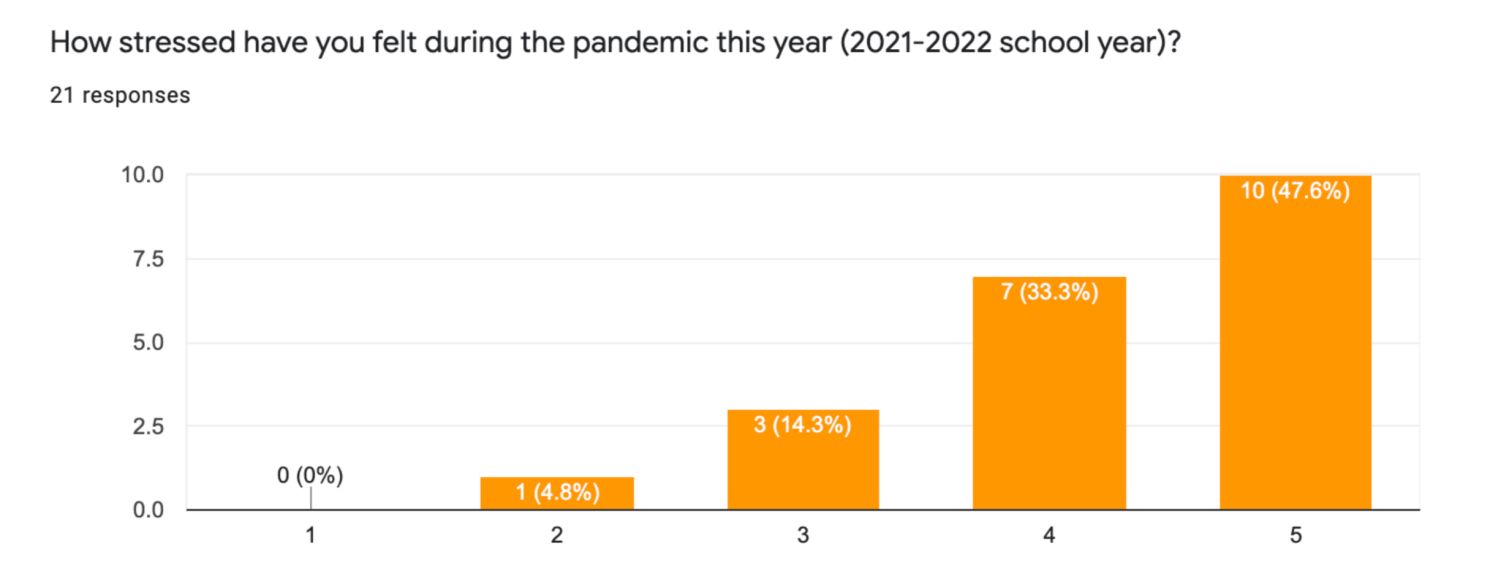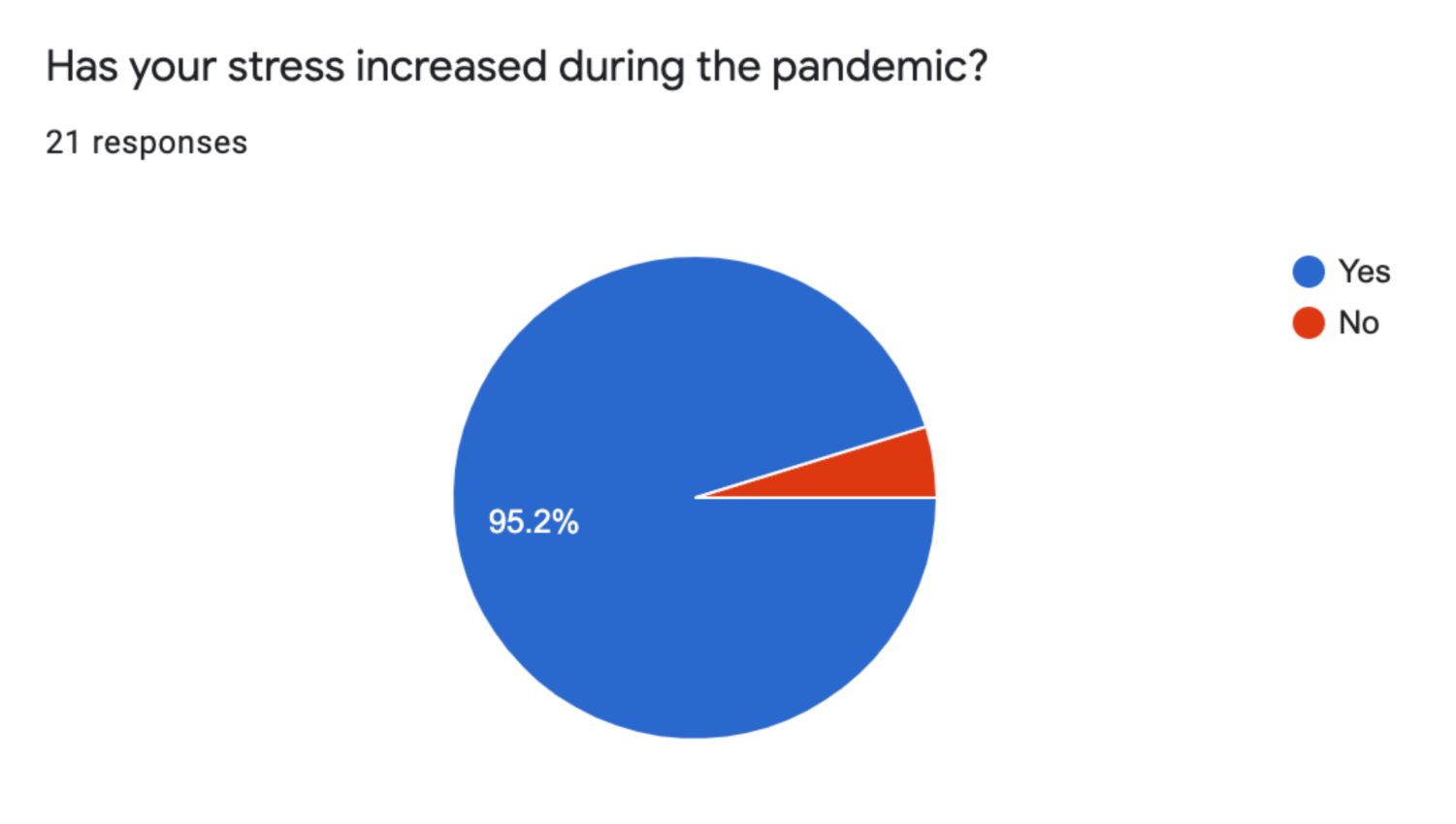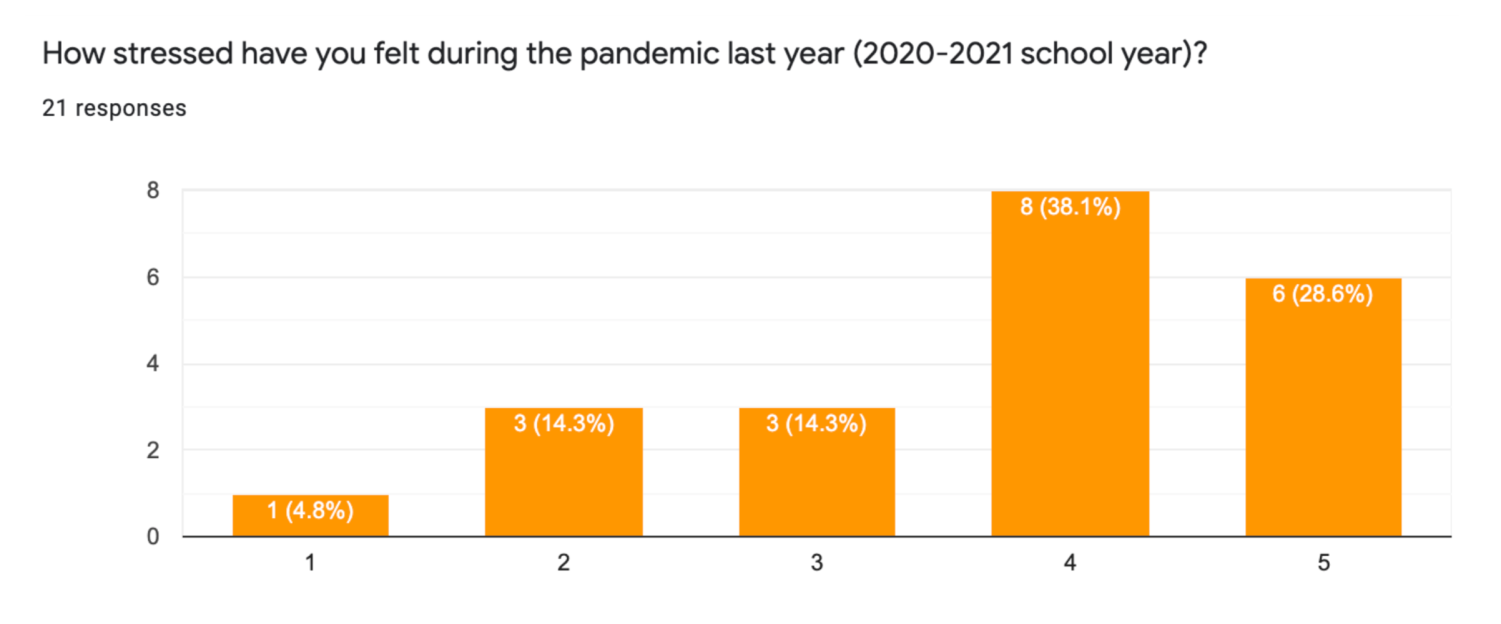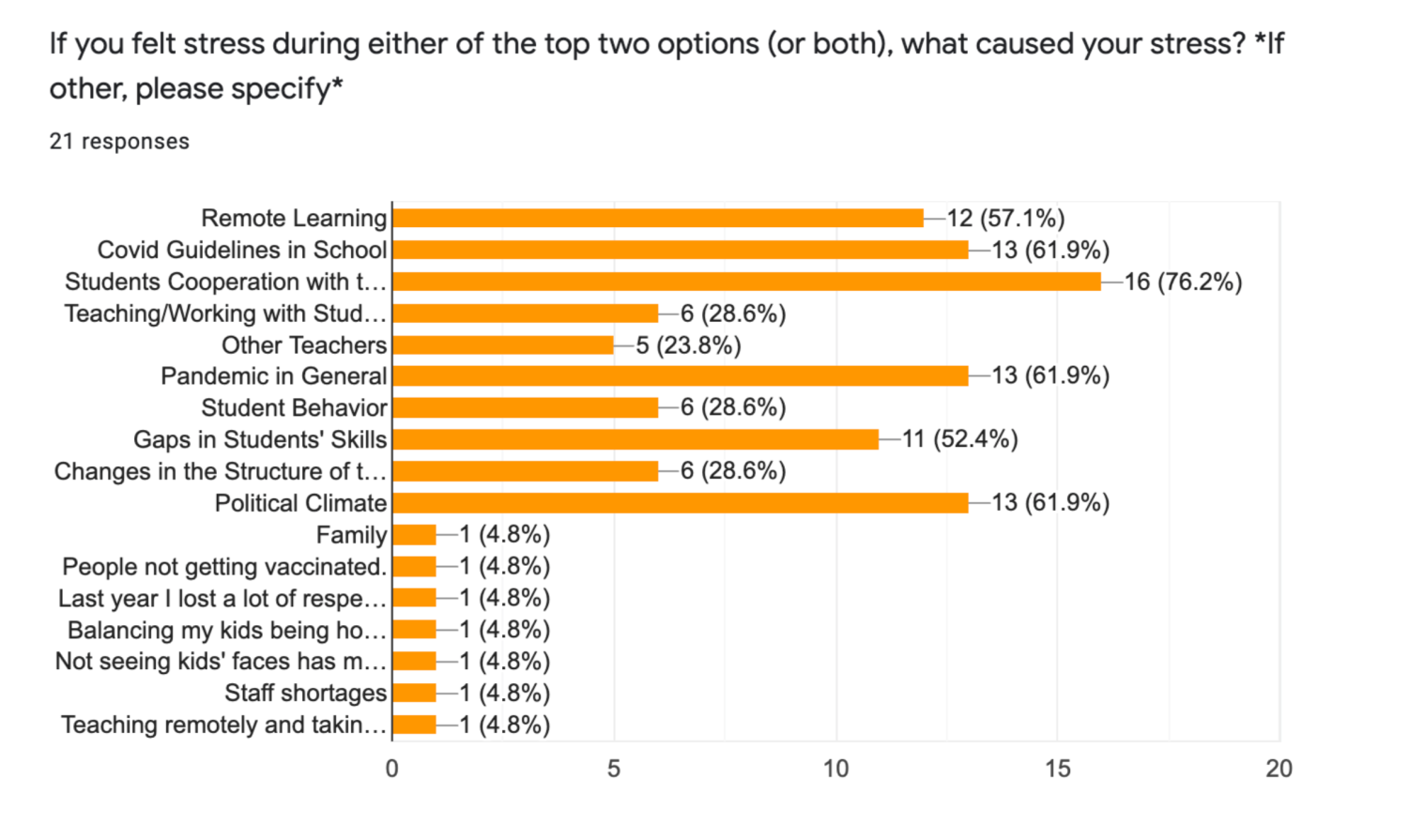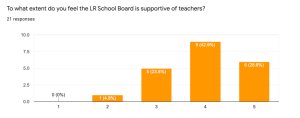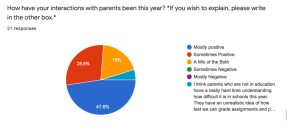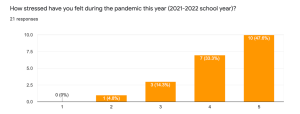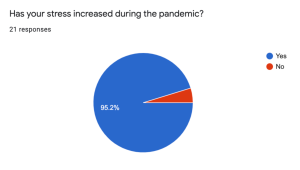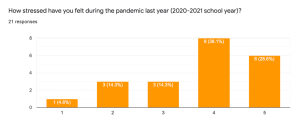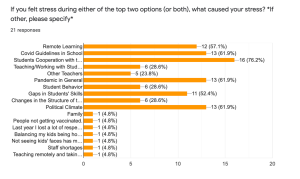Teacher Burnout
The last two years have been stressful for all, including Lake Region teachers. A list of questions was sent to the LR staff asking how teachers have handled the added stress of the pandemic and asking what is causing this added stress that has caused many teachers across the country to walk out on their jobs and their students. What was the Lake Region staff’s response to these questions?
Districts across the country have reported that their schools are widely understaffed for both regular teachers and substitute teachers due to the pandemic. Many teachers have reached a point where they feel as if they have to quit their jobs in order to de-stress, because they are just being asked to do too much. According to an article called Getting Serious About Teacher Burnout, published November 12, 2021 by the National Education Association, “A survey of U.S. public sector workers released in October found that K-12 public school educators were the most likely to report higher levels of anxiety, stress and burnout during the COVID-19 pandemic.”
This trend seems to have continued within our own walls at Lake Region, with 95.2% of teachers stating that their stress has increased due to COVID-19. Teachers experience stress every time they come to work, and as the data shows, they have experienced additional stress for the past two years. Surprisingly, teachers are more stressed this year than they were last year, with 47.6% of teachers claiming that they felt extremely stressed during this school year, compared to just 28.6% last year.
And this is just at Lake Region alone. According to Matt Barnum, national reporter for Chalkbeat who covers education policy, “rates of stress were higher among teachers than most other working adults during the pandemic.” The longer the pandemic lasts, the worse the stress is for teachers. So what exactly is causing this stress for teachers compared to professionals in other fields of work?
When the teachers at Lake Region were provided with a list of factors that could be causing them stress, as well as an option for listing their own sources of stress, the results were very widespread. From the results gathered, 76.2% of teachers agreed that students’ cooperation with guidelines was stressing them out (e.g., cooperation with mask guidelines). Covid guidelines in school, the political climate, and pandemics in general were tied in terms of impact, affecting 61.9% of teachers. More agreed that remote learning was stressful, and more still agreed that student gaps in skills caused real concerns. These are all reasons for stress that students most likely share as well.
The individual answers the teachers provided, however, had the most interesting, and surprising, information. One teacher wrote that the pandemic caused the loss of “a lot of respect for those I work with once I realized how half-ass many were approaching their professional duties and jobs.” As this response shows, professional tension reached a new level last year, mainly because no teachers really know the right way to go about teaching during the pandemic. Some teachers went about it in a way that was trying to keep normality and others went about it in a way that promoted student health and flexibility. There was no right way to do it, leading every teacher to do it in a different way, causing tension and some to feel as this responder did. Another wrote that a lot of their stress was coming from “frustration with those who are actively prolonging the pandemic based on what feel like uninformed and selfish choices.” Shocking, right? Honestly, not really. As a child of two teachers, I have seen first hand the effects of the stress on them. I have watched my parents scramble to change their plans due to kids being absent to quarantine or to covering for teachers who are absent as well. Altogether, the stress of the pandemic is taking a toll on educators.
According to Frontiers in Psychology, an academic journal that focuses solely on psychology and the human brain, the stress teachers are going through is causing symptoms of “anxiety, depression, and sleep disturbance” due to “a consequence of the increased workload resulting from home.” Teachers have never been expected to do so much, but now, their responsibilities are endless. This includes making sure students that are in quarantine get all the work they missed, supporting them remotely, and catching them up when they come back. Balancing in person and remote teaching and lesson plans that serve all students is extremely difficult.
It’s understandable how this is beginning to take this toll on teachers. So where do teachers feel the pressure is coming from? Parents? School Administrators? School Board? A mix of all? When I first began writing the questions for this story, I wasn’t sure whether or not I should ask questions about the support teachers are being given by colleagues, administrators, and the school board—or about the added pressure teachers are feeling from these sources. I feared the worst, but I asked anyway, and got some mixed results. Out of the responses I received, 76.2 of teachers said their interactions with parents were positive, 71.5% of teachers said that they felt the school board was supportive of them, and 57.1% agreed that administrators have helped alleviate their stress instead of adding to it. And this may be at least part of the reason no Lake Region teachers have quit their jobs.
Feeling supported in a job is extremely important and is also a good way to manage stress levels. But this isn’t the only reason teachers haven’t all walked out. Another big reason: teachers, especially many of those at Lake Region, have respect for their students and their responsibilities to their students. Their job is to teach students when they come to school, and Lake Region teachers take that very seriously. While talking to one teacher for this story, she stated that she felt as if it was her responsibility to make sure students got the education they deserved, and she couldn’t leave them. Students come first for many teachers, and that is why many are staying in this field of work despite the stress.
The pandemic has been awful for all of us, nobody excluded. Teachers and educators at Lake Region are going above and beyond to make sure that despite their added stress levels, they continue to do their jobs with passion and integrity. Students, I encourage you to thank your teachers, because even though you may not recognize it, they are under just as much stress—if not more—than you are as a student.
